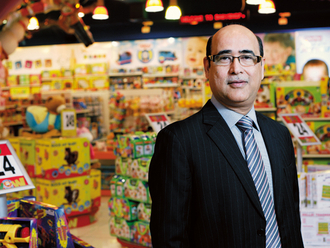My youngest sister turned three a few days ago. Being a 20 year old, I have more of a mother-daughter relationship with her than normal siblings. I always wait for special moments to capture, such as not being able to pronounce my name correctly or finding her covered in my lipstick to name a few.
Almost always, it ends up on Facebook or Instagram because I admit; I want everyone to see how adorable she is. And if not, I make sure that I at least share these moments with my close friends and family on Whatsapp or Snapchat.
Whether it is to our nieces, nephews, younger siblings or even our parents doing it to us, I am pretty sure that almost all of us are guilty of this. This process of a parent sharing intimate information about their child is known as oversharenting, a term coined by The Wall Street Journal.
According to a 2015 University of Michigan C.S. Mott Children’s Hospital National Poll on Children’s Health, about 74 per cent of parents who use social media say they have seen another parent ‘oversharent’. And like everything else, oversharenting has its own consequences, good and bad.
Most of us would assume that oversharenting results in children who crave fame and are ill-adjusted to the realities of life. I mean, look at the celebrities who grew up on TV and social media: Miley Cyrus, Kylie Jenner or Justin Beiber.
No one would blame you if you had the same notion I mentioned above. But I don’t think oversharenting specifically leads to fame hungry children. In fact, The Sydney Morning Herald has said in an article that “techno-documenting a child’s lives from cradle to grave on their behalf raises important issues regarding privacy, and is a crucial issue of respect for children”. I think that we all would be embarrassed to find a really personal childhood photo posted by our parents on social media for the world to see. This means that children don’t want the attention; it does not make them crave fame.
If you really think about it, this age is called ‘the digital era’ for a reason. Life is characterised by technology, the internet and being fast-paced. People are trying to ‘make it’ on Youtube, Snapchat and Vines because that is the most efficient route to fame. Also, the internet depicts life as very easy and breezy.
Seeing a video of a pop star dancing on stage and enjoying the song looks very attractive but no one knows what goes on backstage. I do agree that parenting shapes the way a child deals with life and its problems, but desire for fame stems rom something way more complex than oversharenting.
- The writer is a media student at University of Sharjah.
The International Government Communication Forum (IGCF), held in Sharjah, is an annual forum that shares global best practices in fields of government communication and aims to build a platform for better communication between governments and their citizens. This column is a collaborative effort with Gulf News featuring work by UAE-based students as part of that initiative.








